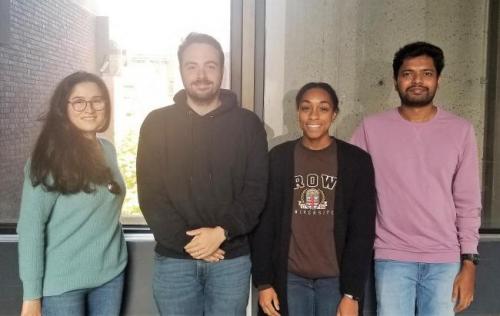
The Therapeutic Sciences Graduate Program (TSGP) offers advanced training appropriate for academic and research careers in the fields of biology and medical sciences with a focus on determining disease mechanisms, drug actions, and developing novel therapies. The program offers students a very diverse, welcoming, collaborative learning environment that draws upon faculty experts from the life and physical science departments as well as physicians at Brown's affiliated hospitals. Together, students and faculty form a community of scholars committed to Brown's core mission that includes advancing knowledge and scientific discovery.
